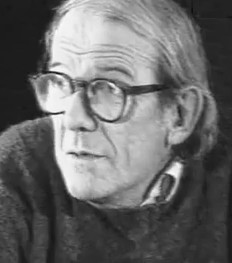Gilles Deleuze (1925-1995) is a French philosopher and considered by many as one of the great thinkers of 20th century. His two-volume Capitalism and Schizophrenia (which he co-wrote with Felix Guattari) delivers insights into human nature and devastating critiques of capitalism. As part of a course on post-modernism and Buddhism he gave at the Graduate Theological Union in Spring 2008, dharmas blogger Doug Powers introduced the major theses of Deleuze and led a discussion on the intersections of Deleuzian and Buddhist concepts. In the coming weeks we will publish edited transcripts from these lectures on the university’s website. Here is a short preview:
“Both the Shurangama Sutra and this text (“What is Philosophy?”) are primarily about the issue of adding certainty or concreteness to something that’s only provisional. Remember, the self is not a problem as long as you don’t believe that the self is real. Of course, we operate in the provisional self. The problem is when we take the provisional self, the illusion of self, to be true. And so both Deleuze and the Shurangama Sutra are pointing to the same exact problem.
It’s not a matter of using concepts, it’s a matter of making sure you understand as you use them that they are still provisional, they are not the same as direct experience. And the beautiful thing about Deleuze is that he doesn’t say truth, he says direct experience. That is always open to chaos, and never has any place where it stops.
See, that’s the interesting thing about Buddhism. Unlike any other point of view, Buddhism never lets you stop any place because any place you stop is another illusion. The reason I like Deleuze a lot is that very few people capture the openness at the bottom of it all.”

